Education for sustainable development
Challenge
Global challenges like climate change, loss of biodiversity, depletion of natural resources, rising food prices, reduced food safety and food security, increasing youth unemployment and conflicts affect the hardest the people who have the least. This threatens equality, democracy and our ability to reach the UN sustainable development goals. Information about and solutions to these global challenges are available. Action is needed!
Our response
In EDS, we believe that sustainable development starts with each of us. When Hafiz started to teach children and youth, he was young boy, out of school, not much education and no money. He was harassed and beaten by teachers and family and nobody attempted to listen to him or understand his challenges. He dreamed of a learning environment where learning was fun, brought the feeling of mastery, students could play, and teachers behaved like friends. Seeing younger children out of school, he decided to use the resources he had to create the learning environment he dreamt of for those children so they would not have to go through the pain Hafiz had.
Hafiz had a strong purpose driving him, he used his willpower, ability to communicate with children, inspire and motivate them to believe in their dreams and create hope for a better future, he captivated them with his ability to create and tell stories and he used his own negative experiences to make learning easy and fun.
Hafiz’ response to anyone telling they couldn’t do anything to help others as they didn’t is: “Just start with the skills, time and values you have. Connect with children and youth, teach them what you know, play with them, make them feel valued, able learners and ignite hope in them that can create a good future.”
Children and youth are key to reach the UN sustainable goals. About one third of the 174 million people in Bangladesh1 are children and youth. Therefore, we have created EDS as a collaborative learning community where children, youth and adults learn together that they can all take decisions and actions to create a more human world.
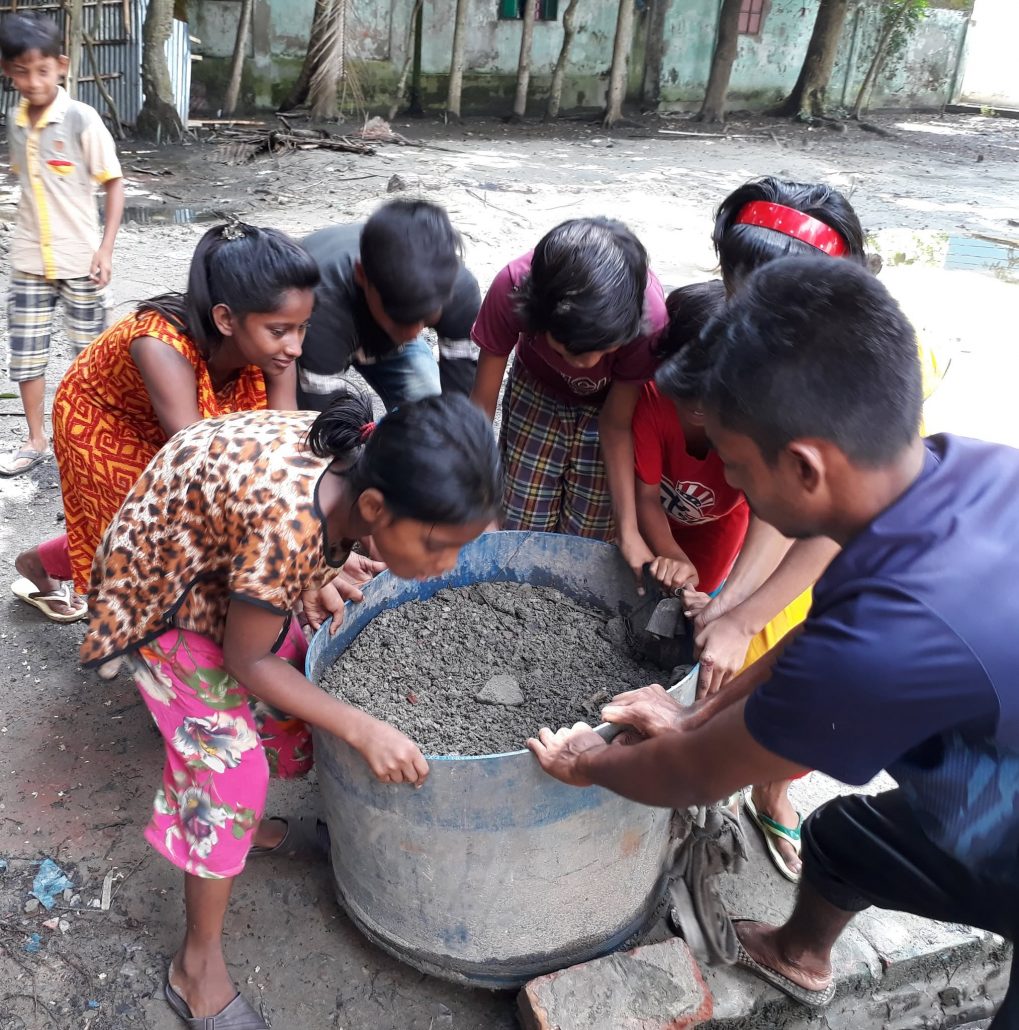

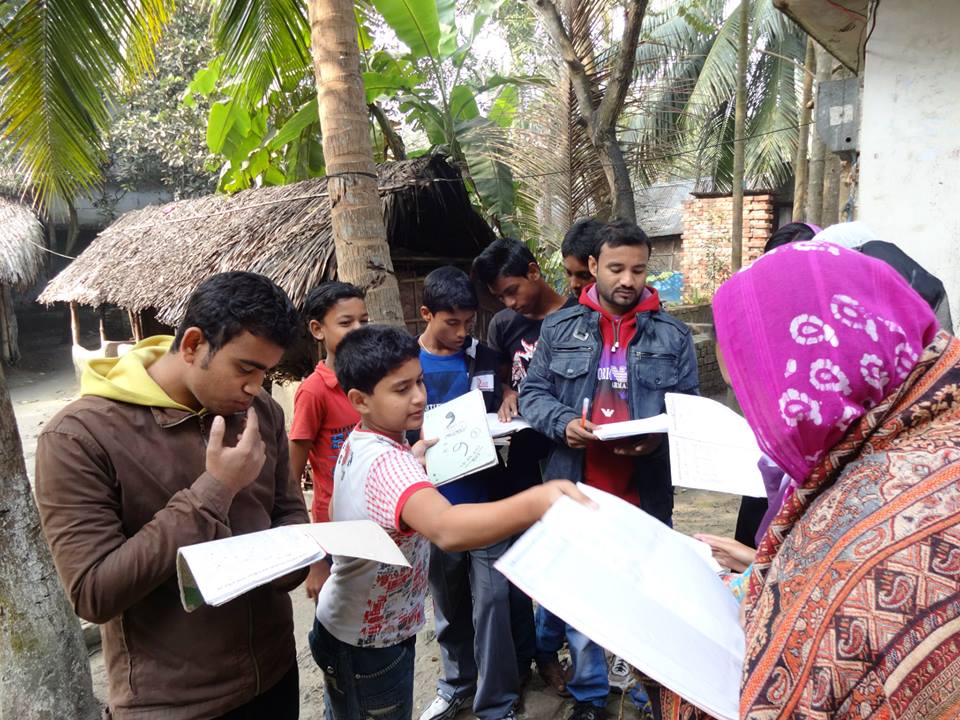
Collaborative learning
We empower children and youth to develop their community in socially, environmentally and economically sustainable ways. Through action-reflection cycles and experiential learning, they develop transformative skills like the ability to connect and care for each other and the nature, compassion and empathy, the ability to collaboratively identify challenges, plan and act, to drive change and the willpower, endurance and perseverance to follow through.
We develop trust and emphatic relations to our children and youth and create psychologically and physically safe spaces where they can open up, become conscious of their inner resources and start their transformative journey. When they come to EDS, they often believe they have no value, can’t learn and feel they are a burden to their family and community, because their surroundings have treated them this way. They do not know how to get out of this negative spiral. We mentor them towards self-reflection and self-love, to develop self-confidence and realize and use their inner resources. They start to believe:
I AM an able learner!
I AM valuable!
I AM a resource person!
I CAN create positive change for myself, my family and my community!
They start acting in line with their new beliefs and gain hope that they can create a better future for themselves and others!
They connect to their inner resources, our EDS community with the fish/rice/vegetable/fruit tree farm and roof garden and the local community surrounding EDS. They get full responsibility to run EDS and take meaningful roles as change agents, entrepreneurs, mentors, teachers and leaders.
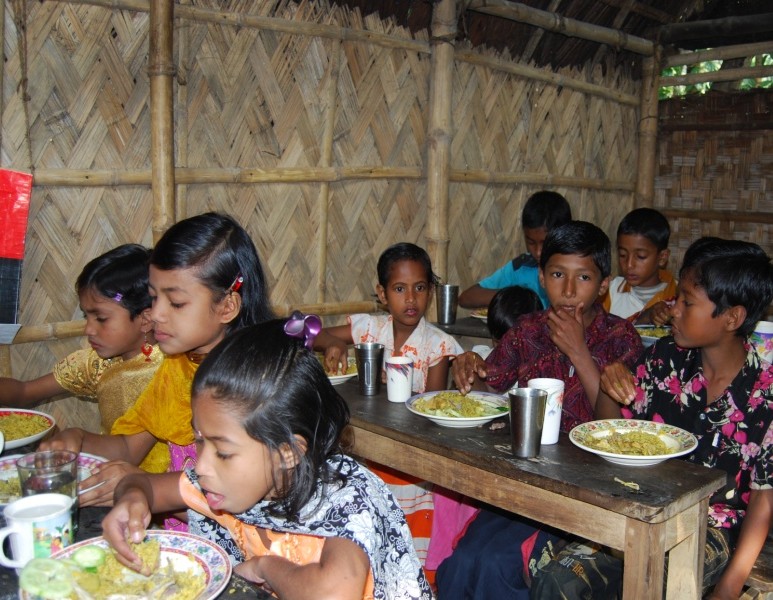
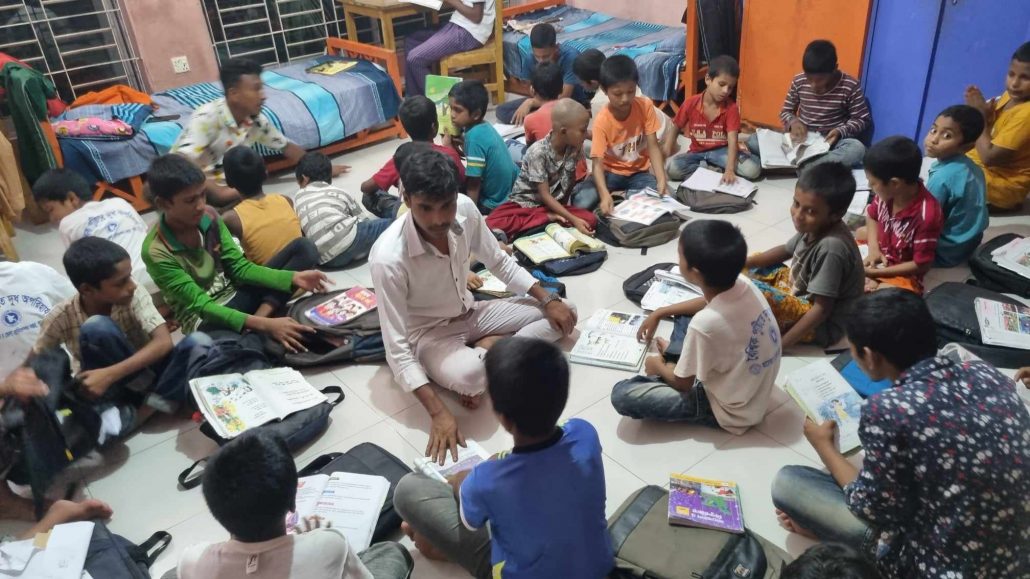
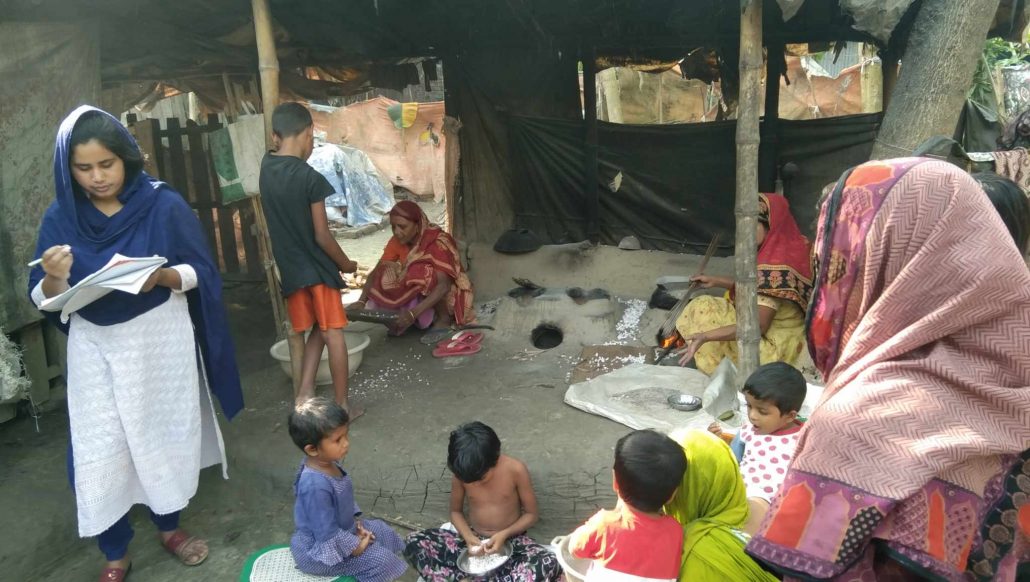
EDS youth engage with children, youth and parents in their community
Through site based learning and meaningful engagement with vulnerable children, youth and the nature, the EDS children and youth grow a sense of belonging and love for their surroundings. They develop a strong will to take care of what they love. We see that these feelings are the driving force for sustainable development.
We work on the UN sustainable development goals related to end poverty and hunger, create good health and well-being, quality education, gender equality, clean water and sanitation, climate action, life on land, peace, justice and strong institutions, decent work and economic growth, innovation, reduced inequalities and sustainable communities.
Some ways we facilitate children and youth to take action towards these goals are:
- Experiential learning: Children and youth get the full responsibility for the entire process from identifying challenges to implementing sustainable solutions, be it social challenges in their community or to conduct and teach sustainable gardening, food security and ecological principles.
- Interdisciplinary projects: By integrating subjects like science, math, and social studies, our children and youth connect theoretical knowledge to real-world sustainability challenges and develop related skills.
- Community engagement: When our children and youth serve their community, they develop bonds, care and a sense of belonging.
- Values and ethics education: We emphasize honesty, integrity, and social responsibility, guiding children and youth to make ethical choices that positively impact their lives and communities.
- Reflection and dialogue: We create spaces for open discussions, allowing our children and youth to reflect on their experiences and the implications of their choices in a supportive environment.
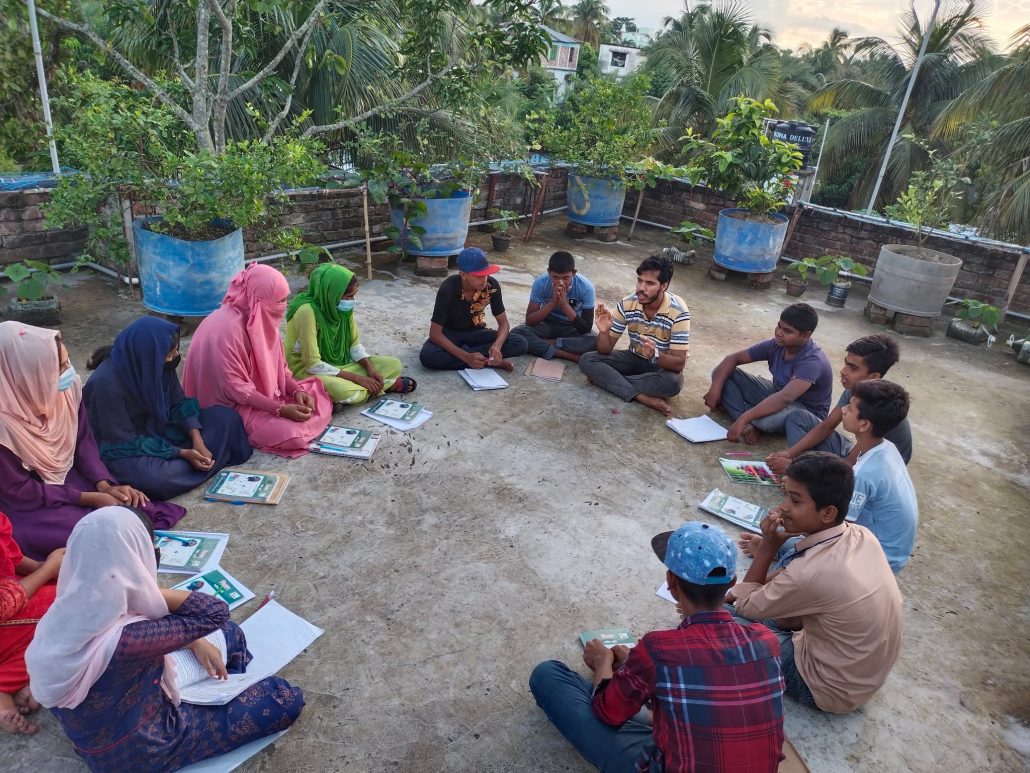
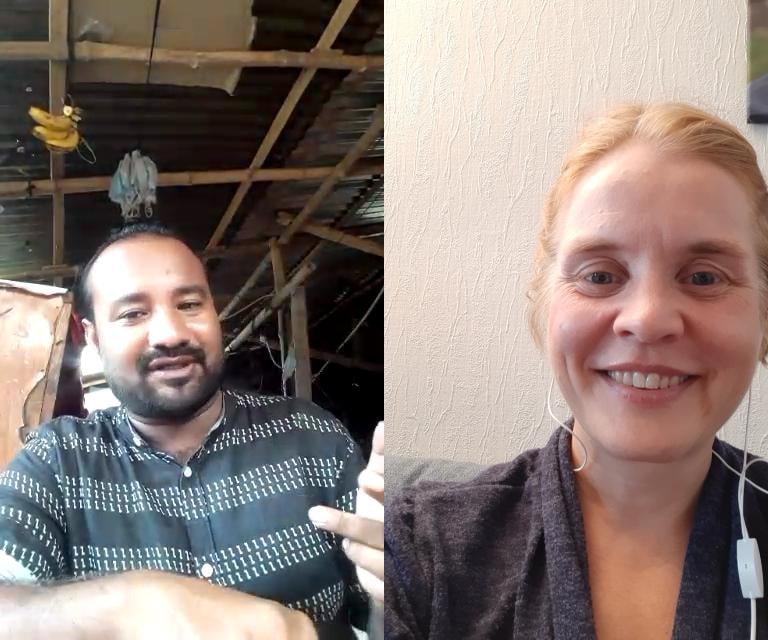

Taking the time to reflect together, share experiences and thoughts
Results
By fostering a strong sense of community and connection, our children and youth recognize their potential and role in shaping a better world for themselves and others. They have developed sense of belonging and responsibility to care for the people, community and nature they love.
1.World Population Review (2021). Bangladesh Population 2021. Retrieved November 1, 2021, from https://worldpopulationreview.com/countries/bangladesh-population
Lorem ipsum dolor sit amet, consectetur adipiscing elit. Ut elit tellus, luctus nec ullamcorper mattis, pulvinar dapibus leo.